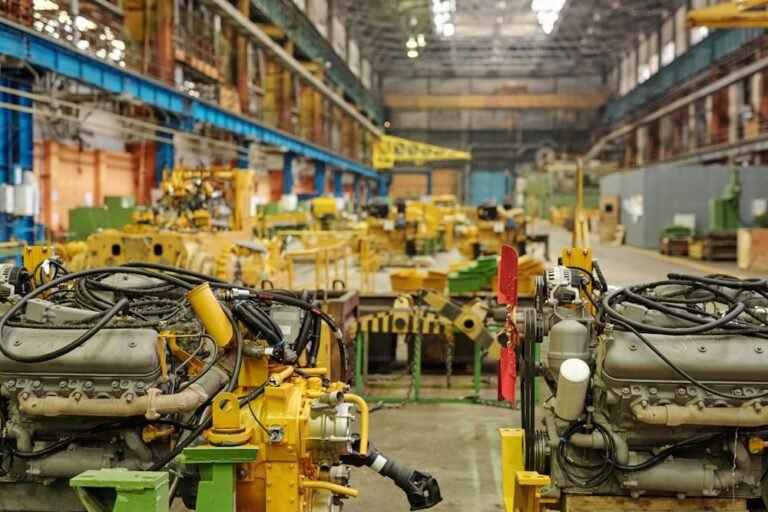Operating an industrial facility is a complex endeavor that requires meticulous planning, adherence to regulations, and a deep understanding of operational dynamics. Whether you’re setting up a new facility or managing an existing one, success hinges on preparation and proactive management. Here are essential tips to navigate the challenges and maximize efficiency in your industrial operations.
1. Comprehensive Safety Protocols
Safety is paramount in any industrial setting. Establishing and enforcing rigorous safety protocols should be the foundation of your operational strategy. Conduct thorough risk assessments, identify hazards, and implement robust safety measures.
Provide regular training for employees on safety procedures and ensure compliance with occupational health and safety standards (OSHA, ISO, etc.). Regular audits and reviews of safety protocols are crucial to maintaining a safe work environment.
2. Maintenance Planning and Execution
Industrial machinery and equipment are the heart of your operations. Implementing a proactive maintenance strategy is essential to prevent breakdowns and costly downtime. Develop a detailed maintenance schedule that includes regular inspections, lubrication, and predictive maintenance techniques such as vibration analysis and thermography.
Prioritize equipment reliability and efficiency to optimize productivity and extend the lifespan of critical assets.
3. Energy Efficiency Initiatives
Energy consumption represents a significant operational cost in industrial facilities. Implement energy-efficient practices and technologies to reduce your facility’s environmental footprint and operational expenses.
Consider investing in energy-efficient lighting, HVAC systems, and machinery. Conduct energy audits to identify areas for improvement and implement measures such as insulation upgrades and automated energy management systems to optimize energy use without compromising productivity.
4. Supply Chain and Inventory Management
Efficient supply chain management is crucial to minimize disruptions and ensure timely delivery of raw materials and supplies. Implement robust inventory management systems to track stock levels, forecast demand, and streamline procurement processes.
Foster strong relationships with suppliers and implement contingency plans to mitigate supply chain risks such as disruptions in transportation or raw material shortages.
5. Regulatory Compliance and Permitting
Navigating regulatory requirements is crucial when managing an industrial facility. It’s essential to stay updated on environmental regulations, zoning laws, and industry-specific permits, such as the Storm Water Pollution Prevention Plan (SWPPP) permit in Utah. Compliance with these regulations at the local, state, and federal levels is imperative to prevent penalties, legal complications, and damage to your reputation.
Keep detailed records and engage with industry associations or networks to stay informed about regulatory updates that could affect your operations. This proactive approach ensures that your facility operates within the boundaries of the law while promoting environmental stewardship and community responsibility.
6. Employee Training and Development
Investing in your workforce is essential for operational excellence. Provide comprehensive training programs for employees to enhance technical skills, safety awareness, and operational efficiency.
Encourage continuous learning and professional development opportunities to empower employees and foster a culture of innovation and excellence. Recognize and reward employees for their contributions to motivate and retain top talent within your organization.
7. Emergency Preparedness and Contingency Planning
Prepare for unexpected events by developing and regularly updating emergency response plans. Conduct drills and simulations to ensure employees are familiar with emergency procedures such as evacuation routes, first aid protocols, and firefighting techniques.
Maintain emergency supplies and equipment such as fire extinguishers, first aid kits, and emergency lighting systems. Collaborate with local emergency services and community stakeholders to enhance response capabilities in case of emergencies.
8. Continuous Improvement and Innovation
Embrace a culture of continuous improvement and innovation to stay competitive in the rapidly evolving industrial landscape. Encourage feedback from employees and stakeholders to identify opportunities for process optimization and innovation.
Implement lean manufacturing principles and digital technologies such as IoT (Internet of Things) and AI (Artificial Intelligence) to enhance operational efficiency, reduce waste, and improve decision-making processes.
Conclusion
Operating an industrial facility requires strategic planning, meticulous execution, and a commitment to safety, efficiency, and compliance. By prioritizing safety protocols, proactive maintenance, energy efficiency, supply chain management, regulatory compliance, employee development, emergency preparedness, and continuous improvement, you can optimize operations and achieve sustainable growth in your industrial endeavors.
Remember, preparation is key—before the machines roar, ensure you have laid a solid foundation for success in your industrial operations.





